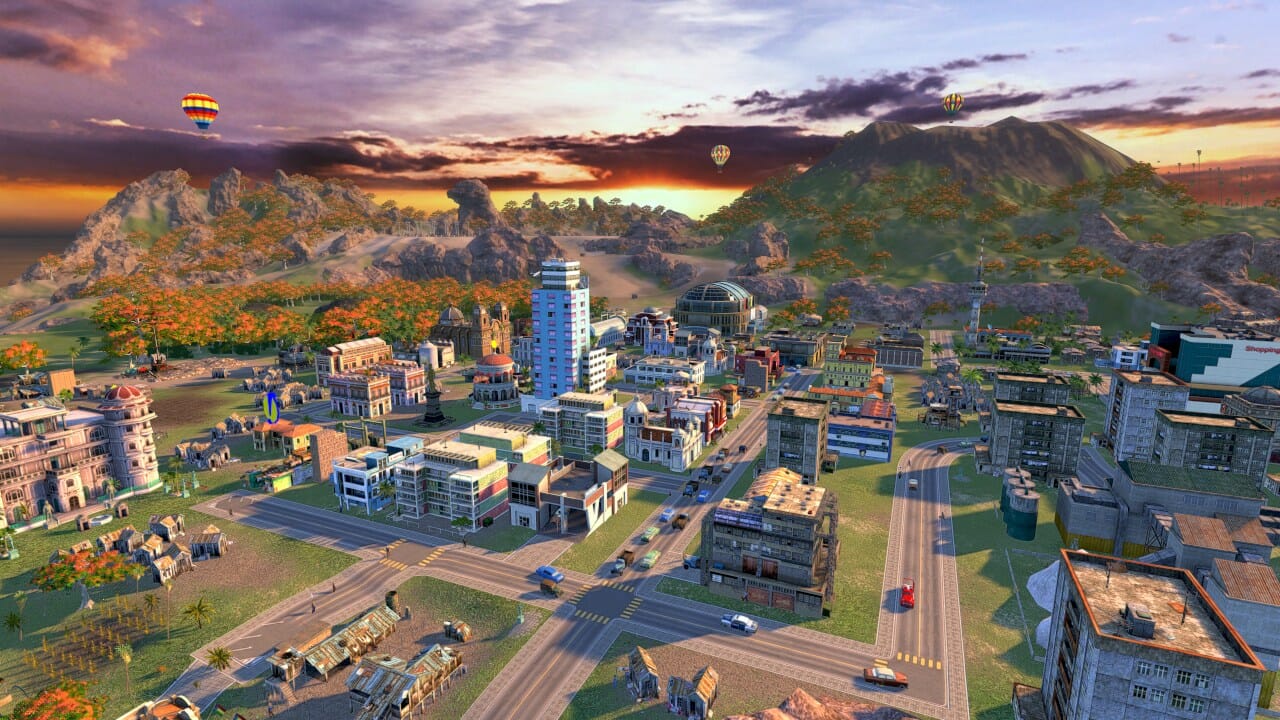Tropico 4 (PC/360)

December is a slow month for new games, so over the next few weeks we’ll look back at notable Fall releases that we haven’t reviewed yet. Today J.P. Grant reviews the banana republic simulator Tropico 4.
El Presidente never gets a break. In Tropico 4, the latest installment of Bulgarian developer Haemimont Games’s Caribbean city-building series, you hardly get a moment to think before some new demand requires your attention. Construction on your new logging camp has barely wrapped when the environmentalist complaints start pouring in. The Church wants you to ban alcohol, but wealthy tourists won’t party in dry nightclubs. And honestly, who cares what country the USSR invaded? Sure, Senator, I’ll condemn the attack—as long as you keep those aid dollars flowing.
Tropico 4, like its predecessors, is an exercise in balancing competing interests. You can’t increase security without threatening liberty. Praise the capitalists and you risk pissing off your Soviet benefactors. Issuing the Social Security edict will earn you citizens’ respect but deplete your Treasury. Just ask Congress: in government, everything is a trade-off.
The simulation model in Tropico 4 is as deep and addictive as it’s always been. As El Presidente, you guide your banana republic from squalor to renown against the backdrop of a cartoonish Cold War setting. It’s easy to see why this series is catnip for micromanagers: your ability to control the flow of time, and to peer into the opinions and needs of each individual Tropican, inform your strategy. In both the campaign’s 20 island-hopping missions and the more freeform Sandbox mode, your primary goal is to remain in power, despite whatever obstacles—natural disasters, rebellions, invasions, market crashes—the game throws at you. You do so by growing your island’s economy, issuing domestic and foreign policy edicts, and building structures designed to keep your people happy—or at least squarely under your thumb.

Like in Tropico 3, the sinister undertones of totalitarian oppression and corruption in Tropico 4 are largely offset by the tongue-in-cheek tone. It’s hard to read much menace into objectives when they’re delivered by a jowly caricature of Richard Nixon. And although you can choose a notorious dictator like Fidel Castro or Manuel Noriega for your avatar, it’s often more satisfying to play the benevolent leader than the ruthless tyrant. Sure, arranging an “accident” for one of your detractors is good for a lark every once in a while. But in a game so heavily focused on building, it often feels self-defeating to play destructively. This is your island, after all. And you can’t keep building if all the builders are in prison.
As in any political sim, keeping all parties happy (or at least non-violent) means flitting between tasks like a bee between flowers. Tropico 4’s retooled objective system, which pops up periodic tasks in addition to your main goals, ensures you stay busy, whether that’s building luxury hotels, exporting canned pineapple, or squashing rebellions. While the variety is fun, it also contributes to a more frantic pace than in Tropico 3, steepening the learning curve. The thinness of the tutorial missions doesn’t help, especially in the console environment, which is not known for its friendliness to strategy titles.
The transition to the Xbox 360 hasn’t hurt the game in terms of presentation, though. Tropico 4’s terrific Latin soundtrack perfectly suits the rhythm of play, lending a festive flavor to the routine tasks of planning, building, and monitoring your island. The bright, colorful visuals don’t hurt either, especially since they scale so well to the camera’s zoom level. The voice acting is uneven at best, but generally more endearing than irritating, especially since the dialogue is often charmingly satirical. This game is pretty to look at and listen to. That makes a big difference in the strategy genre, which can sometimes feel like a series of spreadsheets thinly masked by a map.
